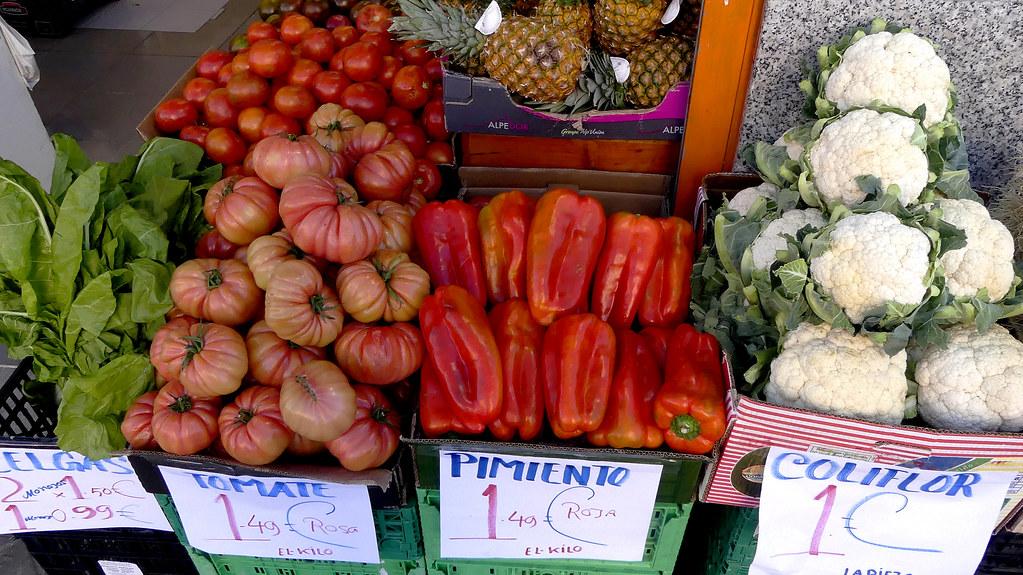Embarking on a journey towards better health can often feel overwhelming, especially with the myriad of dietary options available today. Among these, the Mediterranean diet stands out not just for its delicious and diverse array of foods, but also for its profound health benefits, backed by years of research. Rooted in the traditional eating habits of countries bordering the Mediterranean Sea, this diet emphasizes whole foods, healthy fats, and a vibrant array of fruits and vegetables. Whether you’re looking to improve heart health, enhance cognitive function, or simply adopt a more balanced lifestyle, the Mediterranean diet offers a sustainable and enjoyable path forward. In this guide, we’ll explore practical tips to help you seamlessly integrate this diet into your daily routine, ensuring that each step towards better health is both rewarding and manageable.
Understanding the Core Principles of the Mediterranean Diet
The Mediterranean Diet is more than just a meal plan; it’s a lifestyle that embraces the heart of traditional cooking and living from the Mediterranean region. At its core, this diet focuses on whole, minimally processed foods, emphasizing the importance of natural flavors and vibrant ingredients. Here are some key principles to guide your journey:
- Embrace Plant-Based Foods: Fill your plate with a variety of fruits, vegetables, legumes, nuts, and seeds. These foods are rich in essential nutrients and provide a strong foundation for your diet.
- Choose Healthy Fats: Opt for sources of unsaturated fats such as olive oil, nuts, and avocados. These fats are not only delicious but also support heart health.
- Moderate Dairy and Protein: Include moderate amounts of dairy, fish, and poultry, while keeping red meat to a minimum. Consider plant-based proteins like beans and lentils as excellent alternatives.
- Savor the Experience: Meals are meant to be enjoyed leisurely with family and friends. Take the time to savor each bite, fostering a sense of community and well-being.
| Food Group | Recommended Frequency |
|---|---|
| Fruits & Vegetables | Daily |
| Whole Grains | Daily |
| Fish & Seafood | Twice a Week |
| Red Meat | Few Times a Month |
By adhering to these principles, you not only enjoy delicious meals but also nurture your body with nutrients that promote long-term health. Remember, the Mediterranean Diet is about balance and enjoyment, not deprivation.

Incorporating Mediterranean Ingredients into Your Daily Meals
Enhancing your meals with Mediterranean ingredients can be both delightful and beneficial for your health. These ingredients are not only flavorful but also packed with nutrients. Start by stocking your pantry with staples like olive oil, olives, nuts, and seeds. These are rich in healthy fats and can be used to dress salads or as a simple snack. For a burst of flavor, incorporate herbs and spices such as oregano, basil, and rosemary. They not only enhance the taste but also add antioxidants to your diet.
- Fruits and Vegetables: Fill your plate with a rainbow of colors. Opt for fresh, seasonal produce like tomatoes, cucumbers, bell peppers, and citrus fruits.
- Whole Grains: Replace refined grains with whole grains such as quinoa, barley, and whole-grain bread. These provide fiber and sustain energy levels.
- Legumes: Include lentils, chickpeas, and beans in your meals for a plant-based protein boost.
| Ingredient | Health Benefit |
|---|---|
| Olive Oil | Heart health |
| Tomatoes | Rich in lycopene |
| Chickpeas | High in protein |
To seamlessly integrate these ingredients into your routine, consider preparing a simple Mediterranean salad with mixed greens, cherry tomatoes, cucumbers, feta cheese, and a drizzle of olive oil. Or, whip up a hearty chickpea stew flavored with garlic and herbs. These small changes can lead to big improvements in your health, making the Mediterranean diet a deliciously sustainable choice.

Balancing Nutritional Needs with Mediterranean Choices
Finding the right balance in your diet can be a journey, but with the Mediterranean approach, it’s both rewarding and delicious. Incorporate a variety of foods to ensure you’re meeting your nutritional needs. This means enjoying a colorful palette of fruits and vegetables daily. Think of your plate as a canvas, with tomatoes, bell peppers, and leafy greens creating a vibrant masterpiece.
- Whole Grains: Opt for whole grain options like barley, quinoa, and brown rice instead of refined grains.
- Healthy Fats: Olive oil is your best friend. Use it in salads, for cooking, and even as a dip for bread.
- Protein Sources: Focus on plant-based proteins like beans and lentils, and enjoy fish and seafood a few times a week.
- Herbs and Spices: Enhance flavors naturally with herbs like basil, oregano, and rosemary instead of salt.
| Nutrient | Mediterranean Source |
|---|---|
| Fiber | Whole grains, vegetables |
| Omega-3 | Fish, walnuts |
| Antioxidants | Fruits, olive oil |
| Protein | Legumes, fish |
Listen to your body and adjust your food choices to match your personal health goals. If you’re feeling sluggish, add more leafy greens and nuts for a nutrient boost. Remember, the Mediterranean diet is not just about what you eat but how you eat. Take time to savor your meals, enjoy the company of loved ones, and make every meal a joyful occasion.

Maintaining Long-term Success with Mediterranean Lifestyle Changes
Embracing the Mediterranean lifestyle isn’t just about altering your diet; it’s about integrating sustainable habits that can lead to long-term health benefits. Consistency is key to success, so consider setting realistic goals and gradually incorporating changes into your daily routine. Focus on variety and balance in your meals to ensure you’re getting a broad spectrum of nutrients. Remember, this isn’t a quick fix; it’s a lifestyle transformation.
- Incorporate More Fresh Produce: Aim to fill half of your plate with fruits and vegetables at each meal. Opt for seasonal produce for maximum flavor and nutritional value.
- Choose Whole Grains: Swap refined grains for whole grains like quinoa, barley, and whole-wheat pasta to boost fiber intake and maintain energy levels.
- Healthy Fats Are Your Friend: Use olive oil as your primary fat source and include nuts and seeds in your diet to benefit from their heart-healthy properties.
Building a supportive environment can significantly enhance your commitment. Involve family and friends in your journey, and perhaps even start a cooking club to explore new Mediterranean recipes together. Mindful eating is also an essential aspect; savor your meals and pay attention to hunger cues to foster a healthier relationship with food. To help you track your progress, consider the following table:
| Week | Focus Area | Goal |
|---|---|---|
| 1 | Vegetables | Incorporate at least 3 servings daily |
| 2 | Whole Grains | Replace refined grains with whole grains |
| 3 | Healthy Fats | Use olive oil and include nuts |








































